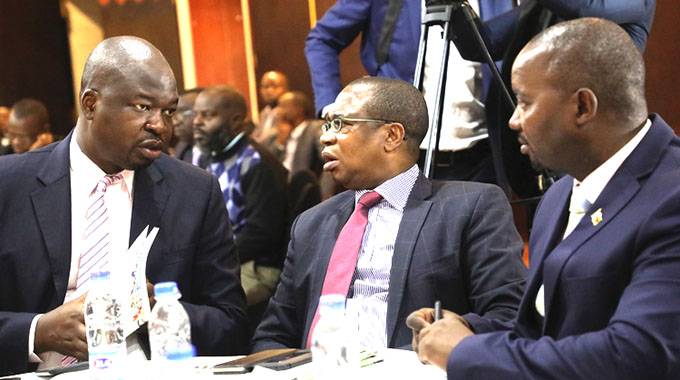Panic as banks backdate 2 percent tax deduction to August
By Leonard Ncube and Oliver kazunga
Depositors are in panic mode after some banks issued notices informing them to brace for the two percent Intermediated Money Transfer Tax (IMTT) deductions, which are backdated to August 2020.

While the move is in line with the new Finance Act No. 8 of 2020 and is applicable to those banks that had not been deducting the two percent tax, depositors received the news with shock as the move will erode their little incomes considering the period under consideration.
Treasury introduced the IMTT, commonly known as “two percent tax” in 2018 but initially did not include foreign currency transactions until June this year.
This was after the Government legalised the use of United States dollars to transact alongside the local currency. The move was meant to ease the transaction burden on the public on the back of the emergency created by the outbreak of Covid-19.
However, some banks had not started deducting the tax on their clients. Leading banks have sent messages to depositors informing them of the pending backdated deductions.
“In line with the new Finance Act Number 8 of 2020, the bank will be backdating collection of the two percent IMTT on all applicable forex and ZWL$ transactions made from 1 August 2020,” said a message from one of the leading banks.
The amendment of the 30th Schedule to (Intermediated Money Transfer Tax) to the income tax Act (Chapter 23:06) of the Finance Act is that a tax rate of two percent of the transaction value shall apply on foreign currency transactions including Telegraphic Transfers, Mastercard and Visa transactions.
The tax-free thresholds in local and foreign currency transactions have been revised to ZWL$300 and set at US$5 respectively while transaction values equivalent to or exceeding ZWL$2,5 million and US$100 000 will attract a flat tax rate of ZWL$50 000 and US$2000 respectively.
For the avoidance of doubt, Treasury has clarified that the transfer of money from nostro foreign currency account is a transaction on which tax is payable in terms of the schedule.
Economic analyst, Mr Persistence Gwanyanya said there is nothing sinister about the tax deduction. He, however, implored banks to find a convenient way of collecting the tax without inconveniencing clients, which may lead to banking transacting apathy.
“The tax was supposed to be deducted from the effective date that was given in the fiscal policy statement, which meant that bank systems should also have been upgraded but didn’t happen probably,” he said.
Mr Gwanyanya said the situation also speaks to the manner in which the Government policies are rolled out and the need to consult widely before-hand. He said that banks may not have deliberately ignored but had to reconfigure their ICT systems hence the backlog.
Chief director of communications in the Ministry of Finance and Economic Development, Mr Clive Mphambela, said the deductions were with respect to tax that was due since August 1.
“This is a two percent tax, which was due from the 1st of August and because banks are tax collection agents, the IMTT in terms of the law was due from the 1st of August and some banks didn’t deduct,” he explained.
“So, those banks that were not deducting the tax have to recover the tax and are simply telling their customers to be aware that there will be effecting the deductions. Ultimately the tax is paid by you (bank client) the bank is simply a tax collecting agent and so they are collecting on behalf of the Government. You can ask them why they were not collecting.”
Bankers Association of Zimbabwe (BAZ) president, Mr Ralf Watungwa, could not be reached for a comment as his mobile was not being answered. The Chronicle






